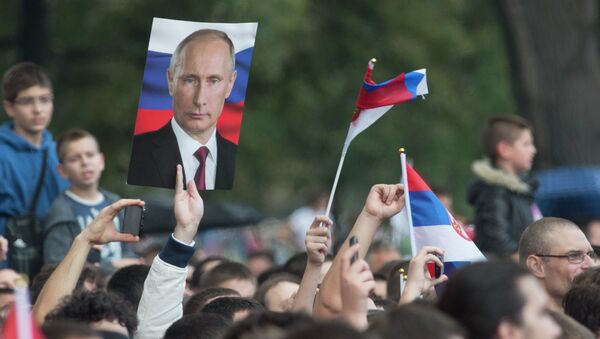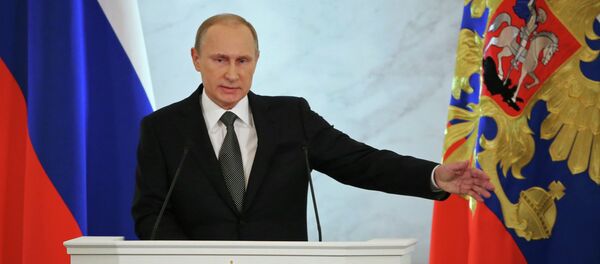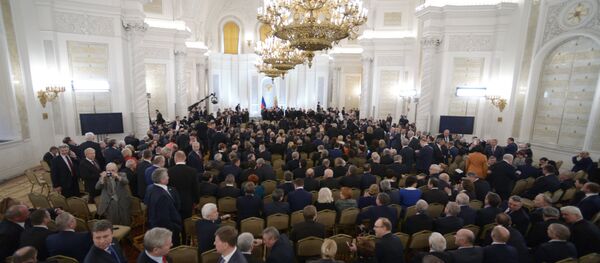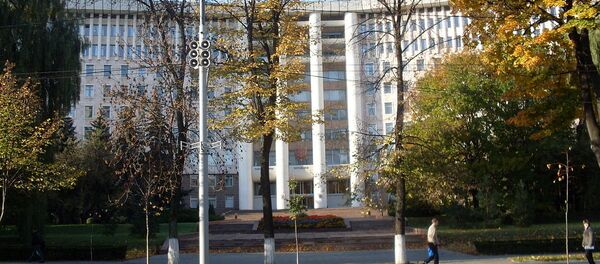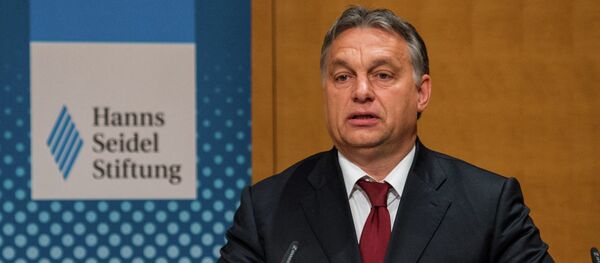Well, we had heard the same kind of talk when Poland, the Czech Republic and Hungary joined NATO in 1999 and the EU in 2004. At the time, Russia was told that membership in NATO will make these countries feel more secure and, ultimately, improve their relations with Russia.
The “zone of prosperity and stability” also cracked up to be a myth (it is enough to mention financial meltdowns in EU members Greece and Cyprus).
In fact, public opinion in Central and Eastern Europe on European integration and especially on the increased military presence of NATO in these areas is badly divided, but the press in the EU and the US is covering up these divisions.
In Ukraine, these divisions burst into the open – and again the Western press tried to cover them up presenting what is actually a civil war inside Ukraine as “a Russian aggression.” To understand this, one just needs to read some interviews of NATIONAL politicians, and not of speakers from the numerous “European analysis” centers.
“I think what happened in Moldova in 2009 was a sort of rehearsal for the much more violent Maidan revolution in Ukraine in 2014,” says Svetlana Gamova, a longtime correspondent of Moscow-based Nezavisimaya Gazeta in Chisinau, Moldova’s capital.
In Georgia, which signed the association agreement with the EU together with Moldova, the radically pro-Western administration of Mikheil Saakashvili, which had prepared the agreement, had to shamefully leave office after almost ten years in power. Mr. Saakashvili is wanted in his native country for numerous crimes, including misuse of state funds, violence against political opponents and involvement in several mysterious deaths of competing political figures.
So much for the former Soviet republics. Central European countries, which had not been a part of the Soviet Union before 1991, are also at least ambiguous in their attitudes to the European Commission “bulldozer diplomacy”, first towards Yanukovych’s Ukraine and now towards Russia.
What is the use of private property if you are made to “share” it with others? What is the use of building, say, a house, if some official wants you to let in other people, without your prior consent?
Or, maybe, the leader of Poland’s New Right party, Janusz Korwin-Mikke, was right when he called the European Commission “a bunch of communists with no respect for private property.” By the way, EuroParliament’s deputy Korwin-Mikke has been singled out by the Polish press as “the political surprise success of the year” because of his party’s results at the European elections this year.
If in Poland the sober views on Russia come from the most courageous activists on the fringes of the political spectrum, in Serbia opposition to sanctions and support for the South Stream was the mainstream and stays the mainstream. “I think South Stream was good for Serbia. We did not distance ourselves from this project even under severe pressure,” said Alexander Vucic, the prime minister of Serbia. “Now we have to pay for the conflict between great powers.”
Wrong information leads to wrong policy decisions. There is NO anti-Russian consensus in Central and Eastern Europe. Believing in this consensus may push the EU and the US further down the path of dangerous confrontation with Russia.
The views expressed in this article are solely those of the author and do not reflect the official position of Sputnik.
